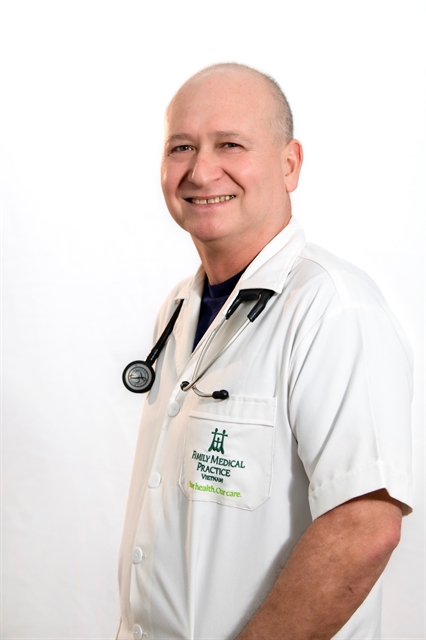 Life & Style
Life & Style


|
| Dr Yami Shapira. — Photo courtesy of Family Medical Practice |
Dr Yami Shapira*
As a gastroenterologist, I have seen first hand how early detection saves lives. Many of the most serious gastrointestinal (GI) cancers – colon and gastric cancer among them – begin silently, without obvious symptoms. By the time warning signs appear, the disease may already be advanced. That’s why screening is so critical. Today, I want to explain who should be screened, when, and why taking action now could make all the difference for your health.
Colon cancer: a preventable killer
Colon cancer is one of the most common cancers worldwide, but here’s the good news: it’s also one of the most preventable. Screening doesn’t just detect cancer early, it can stop it before it even starts. How? By finding and removing precancerous polyps during a colonoscopy. In fact, 5 per cent of healthy, asymptomatic 50-year-olds will have a life-saving diagnosis from this procedure.
Who needs screening?
- Anyone 45 or older. Even if you feel perfectly fine, age is the single biggest risk factor.
- Those under 45 with a family history of colon cancer or multiple malignancies.
- Anyone who has had a polyp removed before.
Your screening otions
There are several ways to screen for colon cancer, including stool tests (like FIT or Cologuard) and colonoscopy. Colonoscopy remains the gold standard because it both detects and prevents cancer by removing polyps. The best test is the one you’ll actually do – so let’s discuss which fits your lifestyle and risk factors.
Gastric cancer: the overlooked danger
While less discussed in Western countries, gastric (stomach) cancer is a major concern, particularly for those of Asian descent. Helicobacter pylori (H. pylori), a common bacterial infection, is the leading cause. In Việt Nam, for example, 70 per cent of the population carries H. pylori, often without knowing it. Left untreated, this infection can lead to chronic inflammation, precancerous changes and eventually cancer.
Who should be screened for gastric ancer?
- Anyone over 40 born in Asia or who has lived there for many years.
- Those never tested for H. pylori – this simple breath, blood or stool test could save your life.
- People treated for H. pylori but never confirmed eradication – treatment doesn’t always work and retesting is crucial.
- Those with a family history of gastric cancer or multiple cancers.
- Anyone previously diagnosed with a pre-cancerous stomach condition (like atrophy, intestinal metaplasia or polyps).
A gastroscopy (upper endoscopy) is the best way to detect early changes in the stomach lining. Like colonoscopy, it’s a proactive step that can catch problems before they progress.
When should you see a gastroenterologist?
Even if you don’t meet screening criteria, certain symptoms should never be ignored. If you experience any of the following, please seek evaluation:
- Frequent or severe heartburn – could signal acid reflux or Barrett’s esophagus.
- Dysphagia (trouble swallowing) – food getting stuck is a red flag.
- Recurrent vomiting or unexplained weight loss.
- Prolonged abdominal or epigastric pain.
- Persistent changes in bowel habits (diarrhoea, constipation or stool shape).
- Rectal bleeding – even if you think it’s just haemorrhoids.
- Iron deficiency anaemia – often the only sign of a slow GI bleed.
Final thoughts: your health is worth the step
Many patients tell me: “But I feel fine – why should I get checked?” The answer is simple: the best time to prevent cancer is before you feel sick. Screening is a small investment for peace of mind and, potentially, a longer, healthier life.
If you’re due for a colonoscopy, have never been tested for H. pylori, or have concerning symptoms, don’t wait. Schedule a consultation and together, we’ll choose the best path for your health. — Family Medical Practice
*Dr Yami Shapira is a highly experienced physician specialising in both Internal Medicine and Gastroenterology. He earned his medical degree from the prestigious Hebrew University of Jerusalem Medical School. Following this, he completed his residency in Internal Medicine at Hadassah University Hospital, and subsequently pursued advanced training in Gastroenterology at Tel Aviv Sourasky Medical Centre (TASMC).
Born and raised in Israel, Dr Yami is fluent in English and Hebrew. What makes Dr Yami special to his patients is his unique and compassionate communication style, his unwavering commitment to providing the highest quality care and follow-up, and his ability to deliver this with a warm sense of humour and a genuine smile.




